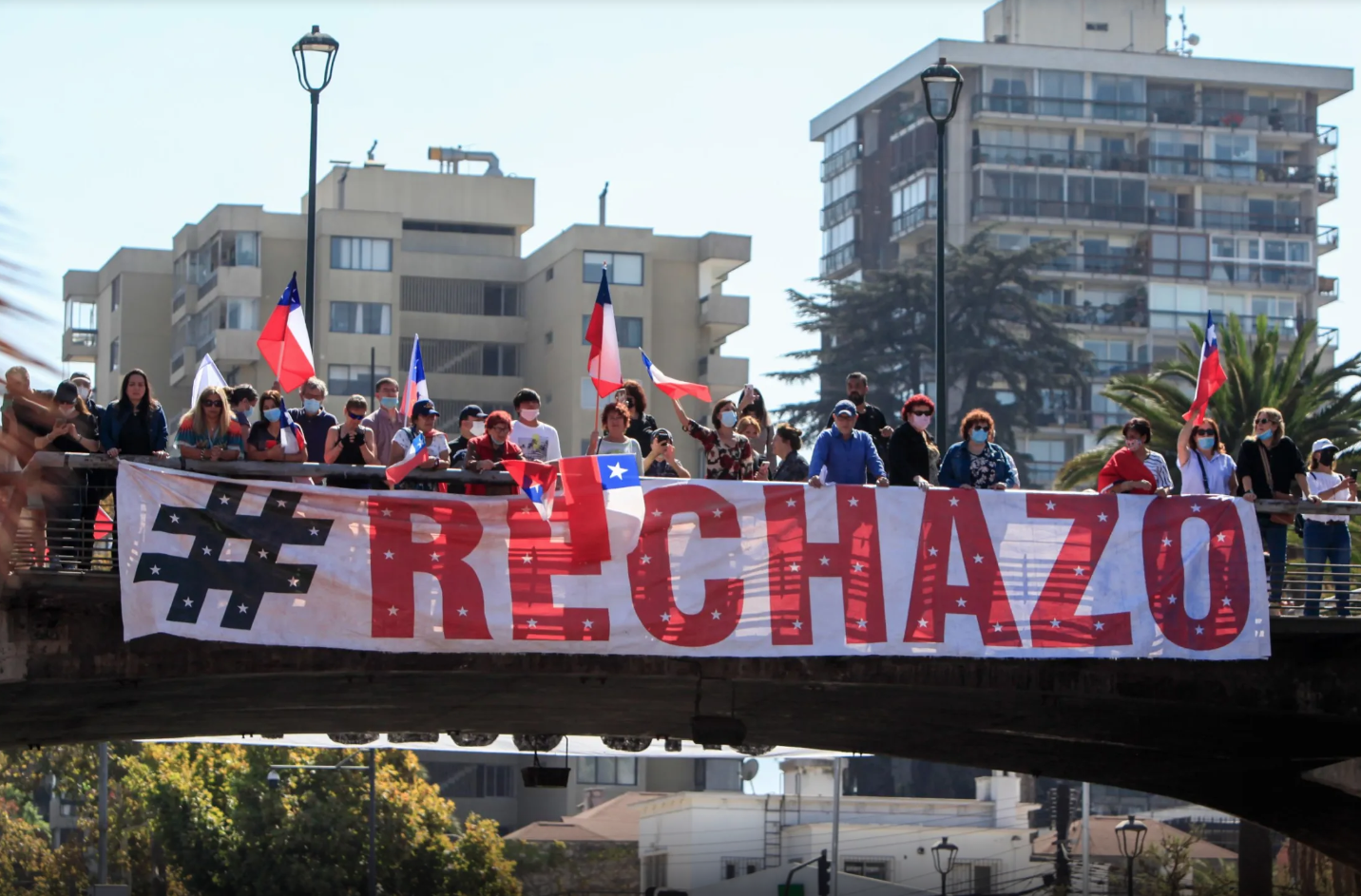There are times when one hates to have been right in the analysis. The truth is, the result of the plebiscite on the new Constitution in Chile, on Sept. 4, left a bitter taste in my mouth. The defeat of the supporters for its approval was too overwhelming, with two-thirds of the votes against the remaining third. Perhaps, a narrower result would have been better. But I must admit that an old article about Gabriel Boric’s victory in the presidential elections late last year—in which I wondered whether we were facing a new mirage in Chile—prompted me to anticipate the bulky result of this plebiscite.
The observation I made at that time referred to a certain interpretation of Boric’s clear victory that, in my opinion, could “become a new mirage of Chile’s social reality”. According to that optimistic interpretation, that victory represented a large electoral mass that picked up intact the spirit of the 2019 protests, supported by younger generations that surpassed the aspirations of the Concertación (Coalition of Parties for Democracy) and formed a broad electoral base on which the youngest president in Latin America could rely.
My main qualm though was about the size of that electoral base of support. Given that only 56% of the electorate had voted and Boric had obtained 55% of those voters, that meant that the president-elect had only the support of 27% of the total electorate. But that vote also had to do with the second round. And opinion polls indicated that 70% of the nearly three million votes that were added to his candidacy in that second round came from other—center-left—parties, which would not follow Boric in the future. In other words, his “broad electoral tide” did not even reach a quarter of the electorate.
My other observation alluded to the idea that support for Boric was the direct result of the unstoppable spirit of the 2019 social outburst. Opinion polls showed that support for what happened during that year was considerably less than it was assumed. Several observers in the country pointed out that those events had been “over-celebrated”, which means that more than half of the Chilean population had a critical view of what had happened.
It is true that Boric’s victory was well associated with the election, with little participation, of the delegates to the constituent convention. And it was also logical that this convention would issue a constitutional text reflecting the political culture of the followers of the electoral platform of the new president.
However, both the process and the resulting text haven’t been able to avoid being labeled partisan by many progressive voices. It soon became evident that the marked political bias of the new constitutional text raised a growing rejection, not only among conservative forces, but also among the center-left sectors that had supported Boric’s candidacy against the right-wing contender, José Antonio Kast. I believe there is a clear majority in favor of overcoming the Constitution coming from the Pinochet dictatorship, but in a much broader way that should allow both progressives and conservatives to govern.
In light of the evidence that public opinion was divided on the proposal for a new Constitution, a notable divergence also emerged among Boric’s supporters. On the one hand, those in favor of negotiating an alternative solution as soon as possible. On the other hand, those inclined to put all the eggs in one basket and favor a campaign for the approval of the constitutional text. But those are also the ones who were caught in the illusion of having the supposedly broad electoral base.
President Boric’s decision to lean towards this second option seems to indicate that he might have been infected by the political mirage fed by the radical left, chanted, by the way, by that left seen across the region. The president could have maintained relative neutrality in the direct campaign. However, he has chosen to fight in the front line in favor of the approval of the constitutional proposal. Now he will have to pay the political cost of it.
In any case, what happened in Chile shows the traditional risks of avant-gardism so well known in the region. A cold reading of Chile’s current situation reflects that, both in substance and in form, a radical left that broke away from the rest of the country to take a great leap forward took advantage of the 2019 social explosion. And three years later, the deep Chilean state—weighed down by a huge sack of apolitical and markedly fearful population, which this time was forced to vote—is taking its toll.
As stated by analyst Ernesto Ottone, the result of the plebiscite vindicates the true sense of the progressive proposal, that which is capable of pulling the country as a whole, measuring the pace that this requires, without making high-risk avant-garde leaps.
It is difficult to anticipate the impact that this heavy defeat will have on President Boric’s government. However, it is likely that it won’t be a negligible or passing effect. Especially in view of the fact that polls already showed a decline in his popularity, due to several governmental mistakes—which many observers attribute to the lack of experience in the management of public administration. Meanwhile, concern is spreading in Chilean progressive circles that what has happened may imply a growing electoral swing to the right.
Translated from Spanish by Ricardo Aceves












